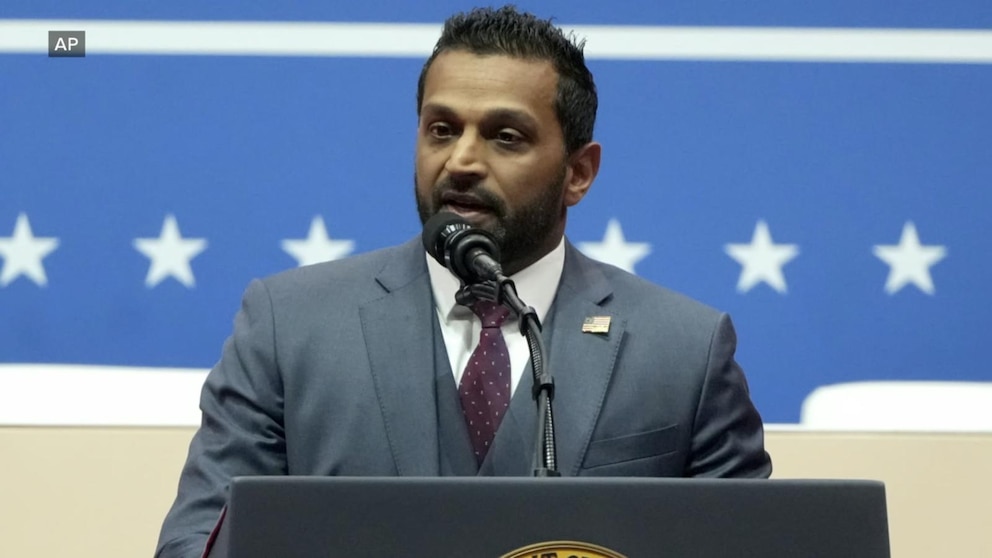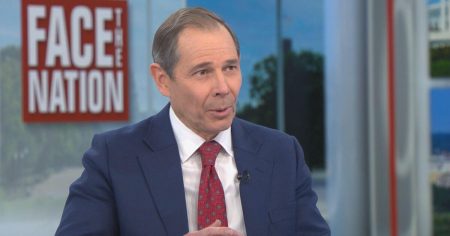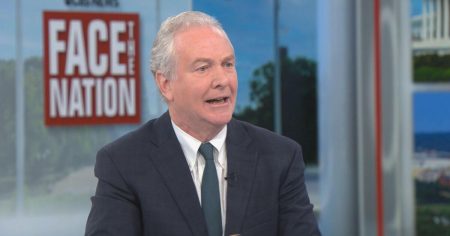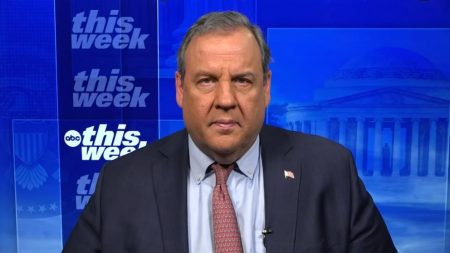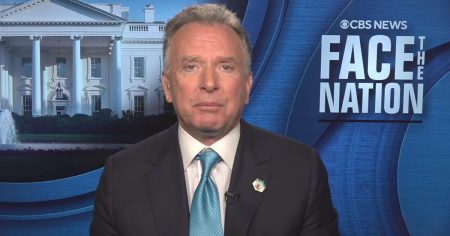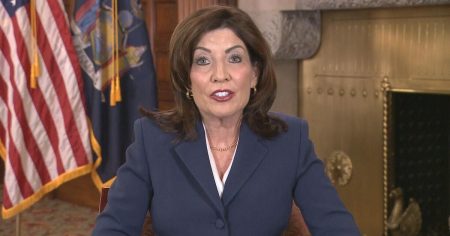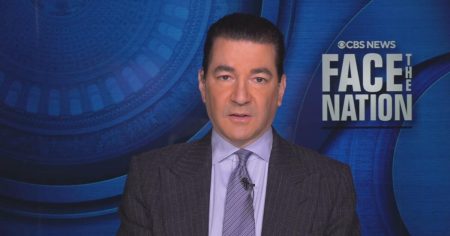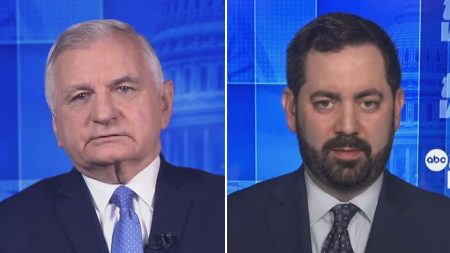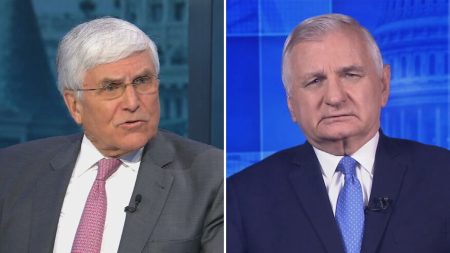KASH PATEL: A CONTROVERSIAL FIGURE TAKES THE HELM AT THE FBI
The U.S. Senate has confirmed Kash Patel as the next director of the Federal Bureau of Investigation (FBI), marking a significant shift in the leadership of one of the most critical law enforcement agencies in the country. Patel, a former aide to President Donald Trump, has been a polarizing figure in Washington, D.C., with a career marked by both staunch loyalty to Trump and accusations of partisanship. His confirmation has sparked intense debate among lawmakers and the public, with supporters hailing him as a much-needed reformer and critics warning of potential politicization of the FBI. As Patel steps into this pivotal role, the nation watches closely to see how he will navigate the challenges of leading an agency tasked with upholding the rule of law without bias.
WHO IS KASH PATEL?
Kash Patel, an Indian-American attorney and former government official, has had a meteoric rise in his career, culminating in his appointment as FBI director. Born in 1980 in New York, Patel earned his law degree from Pace University and began his career as a public defender before joining the U.S. Department of Justice. His ascent into the national spotlight began during the Trump administration, where he served in various roles, including as a senior aide to Rep. Devin Nunes (R-CA) on the House Intelligence Committee. Patel gained notoriety for his involvement in the Republican-led investigation into the origins of the FBI’s probe into Russian interference in the 2016 presidential election, which he and other Trump allies argued was politically motivated.
Patel’s most prominent role under Trump was as the chief of staff to the Acting Secretary of Defense during the final months of the administration. During this time, he was a key figure in the shake-up at the Pentagon following the 2020 election, which saw several high-ranking officials ousted and replaced with loyalists to Trump. Patel’s tenure at the Defense Department was marked by controversy, with critics accusing him of pushing for policies that aligned with Trump’s political agenda rather than the nation’s security interests. Despite these criticisms, Patel has maintained a reputation among his supporters as a fierce advocate for conservative values and a steadfast defender of Trump’s legacy.
THE CONTENTIOUS CONFIRMATION PROCESS
Patel’s nomination to lead the FBI was met with immediate pushback from Democrats and some moderate Republicans, who expressed concerns about his suitability for the role. Critics pointed to his lack of direct law enforcement experience, as well as his perceived partisanship, as major red flags. They argued that Patel’s close ties to Trump and his involvement in politically charged investigations made him unsuitable to lead an agency that must operate independently and impartially.
Despite these concerns, Patel’s confirmation process moved forward, with Republican senators largely rallying behind him. During his Senate confirmation hearings, Patel faced tough questioning from Democrats, who pressed him on his views on the FBI’s independence, his role in the Trump administration, and his stance on issues like election integrity and domestic terrorism. Patel sought to allay concerns by pledging to uphold the FBI’s mission and ensure that the agency remained free from political interference. However, his testimony did little to ease the fears of his critics, who remained skeptical of his commitment to impartiality.
The final vote on Patel’s confirmation was deeply divided, with most Republicans supporting him and Democrats overwhelmingly opposed. The narrow margin of his confirmation—50-50 in the Senate, with Vice President Kamala Harris casting the tie-breaking vote—highlighted the deep partisan divide over his candidacy. As Patel assumes the role of FBI director, he does so with the knowledge that a significant portion of the Senate and the public lacks confidence in his ability to lead the agency without bias.
REACTIONS TO PATEL’S CONFIRMATION
The reaction to Patel’s confirmation has been sharply divided, with supporters and detractors alike weighing in on what his leadership could mean for the FBI and the nation. On one hand, Trump loyalists and conservative Republicans have celebrated Patel’s appointment, hailing it as a victory for accountability and a much-needed shake-up at the FBI. They argue that Patel’s outsider perspective and willingness to challenge the status quo are exactly what the agency needs to regain the trust of the American people, which they claim has been eroded by past scandals and perceived political bias.
On the other hand, Democrats and civil liberties groups have expressed alarm over Patel’s confirmation, warning that his leadership could undermine the FBI’s independence and lead to further politicization of law enforcement. They point to his involvement in controversial investigations during the Trump administration as evidence of his willingness to use the Justice Department as a tool for political ends. These critics fear that Patel’s tenure could result in the FBI being used to target Trump’s political enemies, undermine ongoing investigations into the former president’s conduct, and erode public trust in the agency.
THE IMPLICATIONS OF PATEL’S LEADERSHIP
As Kash Patel begins his tenure as FBI director, the stakes could not be higher. The FBI is tasked with protecting the United States from domestic and international threats, upholding the rule of law, and ensuring justice for all Americans. Patel’s leadership style and priorities will undoubtedly shape the agency’s approach to these challenges, and his actions will be closely scrutinized by lawmakers, the media, and the public.
One of the most pressing questions surrounding Patel’s leadership is how he will handle sensitive investigations involving Trump and his allies. Given his close ties to the former president, there are concerns that Patel could attempt to influence or block investigations into Trump’s conduct, including ongoing probes into his handling of classified documents and his role in the events leading to the January 6, 2021, assault on the U.S. Capitol. Should Patel be perceived as interfering in these investigations, it could have serious consequences for the credibility of the FBI and the integrity of the Justice Department.
Additionally, Patel’s approach to domestic terrorism and civil liberties is likely to come under heavy scrutiny. The FBI has faced criticism in recent years for its handling of cases involving far-right extremism, with some accusing the agency of failing to take adequate action to prevent violent attacks. Patel’s views on these issues, as well as his stance on surveillance and counterterrorism measures, will be closely watched as he navigates the complex landscape of modern law enforcement.
CONCLUSION: A PIVOTAL MOMENT FOR THE FBI AND THE NATION
Kash Patel’s confirmation as FBI director represents a pivotal moment for the agency and the nation. While his supporters see him as a breath of fresh air who will bring much-needed reform to the FBI, his critics fear that his partisanship and close ties to Trump could lead to the politicization of the agency. As Patel assumes the mantle of leadership, he must confront not only the challenges of leading a complex and critical law enforcement agency but also the skepticism of those who question his ability to remain impartial.
The coming months and years will reveal whether Patel can rise above the controversies surrounding his appointment and lead the FBI with the integrity and independence that the American people expect. Should he successfully navigate these challenges, he could play a crucial role in restoring trust in the agency and ensuring that justice is served. Conversely, if his tenure is marked by partisanship and favoritism, it could have far-reaching consequences for the rule of law and the health of American democracy. In either case, the nation will be watching closely as Kash Patel embarks on this vital mission.





